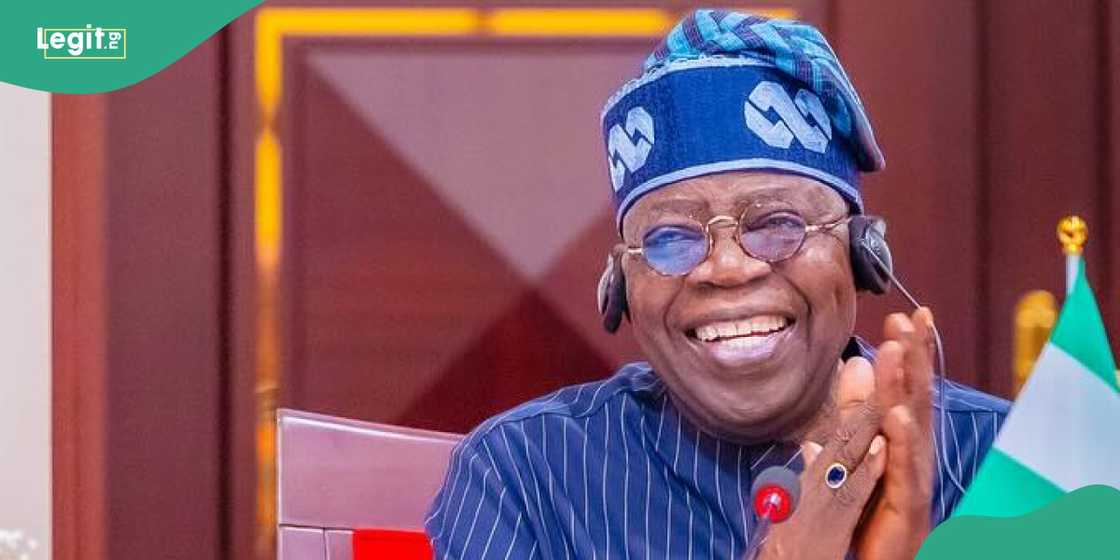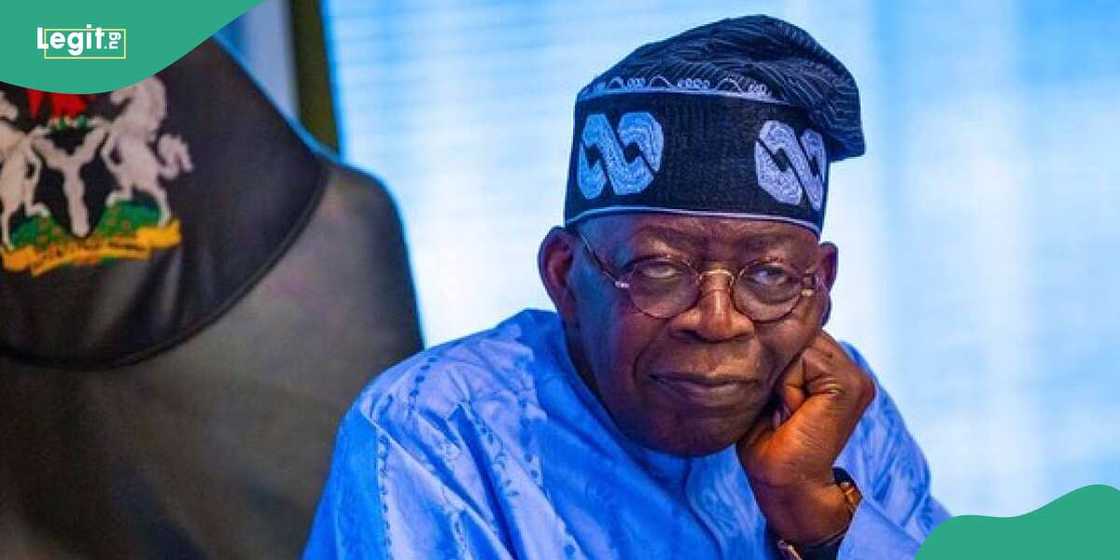As Nigerians look ahead to the next presidential cycle in 2027, fresh predictions and debates are already fueling national conversations. The spotlight recently shifted to a statement by Cameroonian religious leader, Prophet Boris Jedidiah, who publicly prophesied that a Nigerian state governor will officially contest in the upcoming presidential election. His remarks, made available in a widely circulated video, have since become a talking point among political analysts across West Africa.
In the recently released YouTube video, Prophet Jedidiah went further to predict that President Bola Tinubu will not only participate but will succeed in his bid for re-election. According to Jedidiah, “I see a strong contender among the governors, but ultimately, Tinubu is destined to clinch victory in 2027.” The full details and context of his prophecy have sparked intense debate, especially as Nigerians recall the heightened tension and fragmented opposition during the 2023 general elections.
Cameroonian Pastor’s Fresh Prophecy on 2027 Election
Expanding on his vision, the Cameroonian pastor shared his insights in a direct statement:
“During the 2027 Nigerian presidential election, a governor who is presently governing a state of Nigeria is going to stand as a presidential candidate. But The Lord said to me that this governor is not going to become the president of Nigeria. His Excellency, Bola Tinubu, is going to be declared the president of Nigeria during the 2027 Nigerian presidential election.”
An in-depth recount of the prophecy, including Jedidiah’s spiritual rationale and perspective, can be viewed below:
‘Nobody Can Defeat Tinubu’ – Jandor Weighs In
Commenting on the 2027 elections, Abdul-Azeez Adediran — better known as Jandor and the 2023 Lagos gubernatorial candidate — recently described President Bola Ahmed Tinubu as “a master in the game of politics.” Jandor argued that, in his opinion, no other political figure or contender will be able to unseat Tinubu in the next election cycle.
He lauded some of Tinubu’s current economic measures, stating that, “The president’s reforms are starting to show results, benefiting both local governments and ordinary Nigerians.” Jandor, who holds a prominent role within the All Progressives Congress (APC), called on fellow citizens to remain patient and continue supporting the administration in its bid to stabilize the economy and promote progress.
Speaking to local journalists, Jandor maintained that President Tinubu’s network and political acumen set him apart among Nigerian powerbrokers. “He understands the Nigerian terrain; that’s why he can’t be easily defeated,” Jandor declared, reflecting a view shared by several prominent APC members.
He was quoted as saying:
“We are not saying all is well, but at least the President has shown the courage to take our common patrimony from the pocket of the few in the name of fuel subsidy and return it to the country, state and the local government.”

Source: Facebook
The Influence of Tinubu in Nigeria’s Political Landscape
Over the decades, Bola Tinubu’s role in shaping Nigeria’s political machinery—particularly in Lagos State—has become the subject of extensive analysis. Known for his role in transforming Lagos into a major economic hub, Tinubu was instrumental in building a power base that ultimately propelled him to the presidency. The 2023 election, which saw him triumph over a divided opposition and a strong youth-led movement, reinforced his reputation as a political strategist of the highest order.
Succeeding Muhammadu Buhari, who completed two terms in office, Tinubu became Nigeria’s political “godfather” in the words of both commentators and supporters. At 73, he is widely credited with mentoring numerous governors, lawmakers, and cabinet members across party lines, effectively wielding influence well beyond the corridors of Aso Rock.
- Political Experience: Tinubu’s journey from governor of Lagos to national leader has offered him vast political capital and networks across Nigeria’s six geopolitical zones.
- Economic Reforms: According to data from the National Bureau of Statistics, Lagos accounts for nearly a third of Nigeria’s GDP, much of which analysts attribute to policies initiated or continued under Tinubu’s leadership.
- Controversies and Criticism: Despite his achievements, Tinubu has faced criticism over some of his approaches, controversial appointments, and the uneven progress of his economic reforms.
Counterpoints: The Road to 2027 and Challenges Ahead
While supporters cite Tinubu’s successes, critics and opposition figures voice concerns about issues ranging from inclusivity to the impact of recent government policies on everyday Nigerians. The removal of fuel subsidies and subsequent hikes in transport and food prices have triggered protests and ongoing debates in the streets of Lagos, Abuja, and beyond.
Some political analysts, including those at the Centre for Democracy and Development (CDD), warn that with ongoing economic pressures, voter sentiment in 2027 may shift dramatically. Dr. Mfon Ekong, a Lagos-based political scientist, noted, “Incumbency is a major advantage, but presidents still face defeat if living standards don’t improve. The youth in particular will be crucial swing voters.”
2027 Election: Ayodele Warns of Impending Youth Protests
Adding another layer to the political discourse, Primate Elijah Ayodele, spiritual leader and founder of Lagos’ Inri Evangelical Spiritual Church, recently issued his own warning. According to Ayodele, Nigerian youths may protest in the build-up to 2027, which could in turn affect President Tinubu’s chances at securing a second term.
Ayodele’s concerns mirror wider anxieties about youth unemployment, frustration with slow economic progress, and calls for electoral reforms. Civil society groups have also highlighted the need for transparent processes and greater opportunities for young candidates, emphasizing that mass protests can have significant impacts on electoral outcomes, as seen in other West African countries in recent years.
Regional and Global Implications
As Nigeria stands as the continent’s largest democracy and economy, developments ahead of the 2027 election are closely watched by the African Union (AU), ECOWAS, and key international partners such as the United States and United Kingdom. Stability in Nigeria is widely regarded as essential for West Africa’s security and prosperity.
Globally, Nigeria’s elections set a standard for democratic engagement and serve as a bellwether for regional trends in governance, youth participation, and economic innovation. Any protests, reforms, or unexpected challenges could have ripple effects beyond Nigeria’s borders.
Voices from the Community
To understand the mood on the ground, reporters surveyed residents across Lagos and Abuja. Tunde Olusola, a youth activist, observed, “We want leaders who understand the pains of ordinary citizens, not just political calculations.” Meanwhile, Fatima Danladi, a Kano-based business owner, added, “It’s too early to say who will win 2027, but what matters is a fair process and peaceful transition.”
Academic experts, such as Professor Grace Ibe of the University of Nigeria, Nsukka, stress the role of robust institutions: “Prophecies and political strategies aside, strong electoral systems are what sustain Nigeria’s democracy.”
What Lies Ahead for Nigeria?
With months still to go before the official commencement of campaigns, Nigerians are closely following political developments, spiritual prophecies, and grassroots mobilizations. Whether Tinubu will ultimately fulfill both spiritual and political expectations, or if a new challenger will upset the established order, remains an open question.
What do you think about Prophet Jedidiah’s prediction for the 2027 elections? Do you believe Tinubu retains an unbeatable advantage, or could rising agitation and youth interest reshape Nigeria’s political future? Drop your thoughts in the comments and follow us for further in-depth updates.










